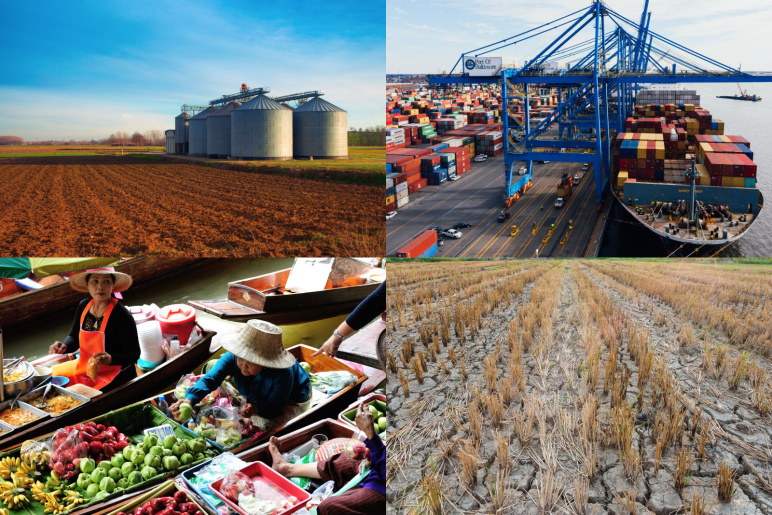Our Research The Jameel Index for food trade and vulnerability

This work aims to help policymakers navigate risks to food security by building a framework to synthesize global food trade indicators into a composite vulnerability index.
Principal Investigators
Challenge:
How can we help policymakers and decision makers navigate the risks posed to food security from disruptions to international food trade in current and future climates?
Research Strategy
- Measure countries’ dependence on food imports and how global- and regional-scale threats might affect the ability to trade food goods
- Integrate multiple models to project global food demand, supply balance, and bilateral trade under different likely future scenarios, with a focus on climate change
- Develop a comprehensive index to assess countries’ food security vulnerability
- Conduct case studies to refine the applicability of the index with on-the-ground information
Project description
International trade and food security are deeply interconnected. Over the past two decades, the volume of crops traded globally has more than doubled, with nearly a quarter of all food produced traded in the international market. The increasingly globalized food system has made trade a crucial factor in determining food security.
While trade can support food security and buffer domestic risks, the complex, interconnected global food trade network can also transmit shocks and increase a country’s vulnerability to climatic, environmental, economic, and geopolitical risks from aboard. Low-income, high food-importing countries are particularly vulnerable to the transmission of external shocks through global food trade networks and often are unable to shield themselves from such shocks with domestic production.
The Jameel Index was designed with food policy stakeholders in mind as a key group of users. To help policymakers navigate these risks, the research team has built a framework to synthesize global food trade indicators into a composite vulnerability index. The Jameel Index combines a range of indicators, including dependency on food and animal feed imports and the concentration risk of trading with only a small number of partners.
This work is the foundational project for the Food and Climate Systems Transformation (FACT) Alliance which is led by the Abdul Latif Jameel Water and Food Systems Lab (J-WAFS) at MIT. Phase one of the project will support a collaboration between four FACT Alliance members: MIT J-WAFS, International Food Policy Research Institute (IFPRI), the Martin School at the University of Oxford, Ethiopian Institute of Agricultural Research (EIAR), and an external partner, United Arab Emirates University.
The project is supported by Community Jameel, an independent, global organization, dedicated to philanthropy and community service.
Additional Details
Impact Areas
- Food
- Climate & Sustainability
Research Themes
- Sustainability & Adaptation
- Economics, Policy, & Practices
- Transforming Food Systems
- Modeling & Data Analytics
Year Funded
- 2022
Grant Type
- Other
Status
- Ongoing

